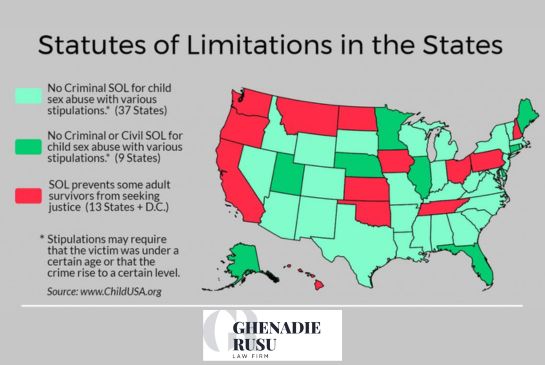The Deferred Action for Childhood Arrivals (DACA) program has been a significant policy affecting young immigrants in the United States. Introduced in 2012, DACA provides temporary protection from deportation and work authorization to undocumented individuals who arrived in the country as children. In this article, we will explore the number of DACA recipients, the impact of the program, and the challenges surrounding it.
Understanding DACA
Definition and Purpose
DACA, also known as the Dreamers program, was created to address the situation of individuals who were brought to the United States as children and lacked legal immigration status. Its primary goal is to provide relief to eligible individuals by granting them temporary protection from deportation and the ability to work legally in the country.
Eligibility Criteria
To qualify for DACA, applicants must meet specific criteria. They must have arrived in the United States before the age of 16, continuously lived in the country since June 15, 2007, and been under the age of 31 as of June 15, 2012. Additionally, they must have completed high school or obtained a GED, or have been honorably discharged from the military. Meeting these requirements allows individuals to apply for DACA status.
Benefits of DACA
DACA offers several benefits to recipients. It grants them temporary relief from deportation for renewable periods of two years, allowing them to live and work in the United States without fear of removal. DACA recipient can also obtain a Social Security number, driver’s license, and access to certain public benefits in some states. Furthermore, DACA provides an opportunity for young immigrants to contribute to their communities and pursue their dreams.
Number of DACA Recipients
Estimating the Total
The exact number of DACA recipients can be challenging to determine due to various factors. As of September 2021, approximately 800,000 individuals had received DACA since its inception. However, it’s important to note that this number may have changed over time due to new applications, renewals, and terminations.
Regional Distribution
DACA recipients are spread across the United States, but some states have a higher concentration than others. California, Texas, Illinois, New York, and Florida are among the states with the largest numbers of DACA recipients. These individuals contribute to the communities they live in and have become integral parts of the fabric of American society.
Changes Over Time
The number of DACA recipients has fluctuated over the years due to various factors. Changes in policy, legal challenges, and the introduction of new programs or measures can influence the number of individuals applying for and renewing DACA. Additionally, changes in immigration enforcement priorities may impact the overall population of DACA recipients.
Impact of DACA
Economic Contributions
DACA recipients have made significant economic contributions to the United States. They contribute to the workforce, pay taxes, and start businesses, generating revenue and creating job opportunities. According to studies, DACA recipient have positively impacted the economy and helped stimulate economic growth.
Socialintegration
DACA has played a crucial role in the social integration of young immigrants. By providing them with legal status and work authorization, it allows them to fully participate in their communities and pursue educational and career opportunities. DACA recipient often considers the United States as their home, and the program has helped them establish roots, build relationships, and contribute to the diverse tapestry of American society.
Education and Employment Opportunities
One of the significant benefits of DACA is the access it provides to education and employment opportunities. DACA recipient can pursue higher education, apply for scholarships, and receive in-state tuition rates in some states. By obtaining work authorization, they can secure jobs that align with their skills and aspirations, leading to better career prospects and economic stability.
Challenges and Controversies
Legal Challenges
Since its implementation, DACA has faced legal challenges. The program’s legality has been questioned, leading to lawsuits and court battles. The uncertainty surrounding DACA’s future has caused anxiety and instability for recipients, as changes in policy or court decisions could impact their status and protections.
Political Debates
DACA has been a subject of intense political debates. Discussions around immigration policy, border security, and pathways to citizenship often intersect with the fate of DACA recipients. Political disagreements and partisan divisions have influenced the program’s fate and contributed to its uncertain future.
Uncertain Future
The future of DACA remains uncertain. While the program has provided temporary relief to many young immigrants, it has also faced continuous threats of termination or modification. The possibility of legislative solutions or policy changes has kept DACA recipient and their communities on edge, uncertain of what lies ahead.
Conclusion
DACA has played a vital role in the lives of many young immigrants in the United States. It has provided temporary protection from deportation and work authorization, allowing recipients to contribute to society and pursue their dreams. Despite challenges and uncertainties, DACA has highlighted the resilience, determination, and aspirations of its recipients.
Please contact the Law Office of Ghenadie Rusu for more information about DACA.
FAQs
1. Can DACA recipients become U.S. citizens? While DACA does not provide a direct pathway to U.S. citizenship, it does offer temporary relief from deportation and work authorization. However, the pathway to citizenship for DACA recipients is a subject of ongoing debate and discussion in the United States.
2. How can DACA recipients renew their status? DACA recipient can renew their status by submitting a renewal application before their current DACA status expires. The renewal process involves providing updated documentation and meeting the eligibility requirements.
3. Are DACA recipients eligible for federal financial aid for education? No, DACA recipient are not eligible for federal financial aid for education, such as Pell Grants. However, some states and private organizations offer scholarships and financial aid opportunities specifically for DACA recipient.
4. Can DACA recipients travel outside the United States? DACA recipient can apply for permission to travel outside the United States through a process called Advance Parole. However, it is essential to consult with an immigration attorney or trusted legal resource before making any travel plans.
5. Can DACA recipients sponsor their family members for immigration benefits? No, DACA recipient cannot sponsor family members for immigration benefits. The program itself does not provide a pathway to family-based immigration. However, family members may explore other immigration options available to them.














